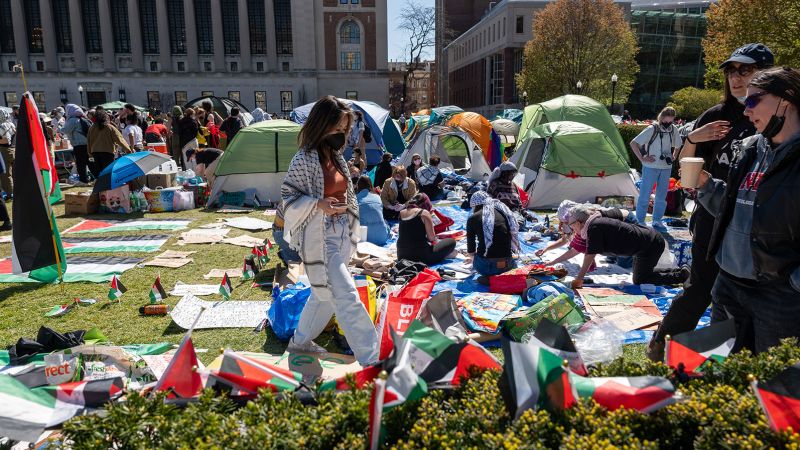KYIV, Ukraine (AP) — Russia unleashed a new missile onslaught on Ukraine’s battered energy grid Wednesday, robbing cities of power and some of water and public transport, too, compounding the hardship of winter for millions. The aerial mauling of power supplies also took nuclear plants and internet links offline and spilled blackouts into neighbor Moldova.
Multiple regions reported attacks in quick succession and cascading outages. Ukraine’s Energy Ministry said supplies were cut to “the vast majority of electricity consumers.” Lviv’s trams and trolleybuses stopped running as the city in western Ukraine lost both power and water, the mayor said. All of Kyiv lost water, the capital’s mayor said. Power also went out and public transport stopped in Kharkiv, the mayor of that northeastern city, Ukraine’s second largest, said.
:quality(70)/cloudfront-us-east-1.images.arcpublishing.com/tronc/R5HQOCN2PDRRZ3HDG5WLSUCG2I.jpg)
President Volodymyr Zelenskyy instructed Ukraine’s ambassador to the United Nations to request an urgent Security Council meeting.
Addressing it later on Wednesday, Zelenskyy said that Ukraine will put forward a resolution condemning “any forms of energy terror.” Referring to Russia’s likely veto, he said, “it’s nonsense that the veto right is secured for the party that wages this war, this criminal war.”
“We cannot be hostage to one international terrorist,” Zelenskyy said, saying the council must act.
He also invited the U.N. to send experts to examine and evaluate Ukraine’s critical infrastructure.
Three people were killed and 11 wounded in a strike in Kyiv, city authorities said. Another four people were killed and 35 wounded in the wider Kyiv region, its governor said.
:quality(70)/cloudfront-us-east-1.images.arcpublishing.com/tronc/R446TEAACDULHDHREC5I6BB7YE.jpg)
“I was going up the escalator, I heard an explosion. Then the electricity suddenly disappeared,” said Kyiv subway passenger Oleksii Kolpachov. “When I got out of the subway, there was a column of smoke.”
Russia has been pounding the power grid and other facilities with missiles and exploding drones for weeks, wreaking damage faster than it can be repaired. Strikes had already damaged around half of Ukraine’s energy infrastructure, Zelenskyy said before the latest barrage, and rolling power outages had become the horrid new normal for millions.
Ukrainian officials believe Russian President Vladimir Putin is hoping that the misery of unheated and unlit homes in winter’s cold and dark will turn public opinion against a continuation of the war — but say it’s instead strengthening Ukrainian resolve.
Ukraine’s Air Force said Russia launched around 70 cruise missiles and 51 were shot down, as were five exploding drones. The afternoon timing of the barrage — as was also the case last week — left workers toiling into the winter darkness to restore supplies.
Russian U.N. Ambassador Vassily Nebenzia told the Security Council that Moscow is carrying out “strikes against infrastructure in response to the unbridled flow of weapons to Ukraine and the reckless appeals of Kyiv to defeat Russia.”
In Kyiv, a city of 3 million, the administration said water and heating would only return to residential buildings on Thursday morning.
Late Wednesday and well after dark, the deputy head of Ukraine’s presidential office said that Kyiv and over a dozen regions, including Lviv and Odesa in the south, had been reconnected to the power grid.
:quality(70)/cloudfront-us-east-1.images.arcpublishing.com/tronc/VVLWP4IOLXVKQ2L3YVNFR3AHXM.jpg)
Moldova, with Soviet-era energy systems interconnected with Ukraine, also reported massive power outages — for the second time this month. President Maia Sandu accused Moscow of plunging the country of 2.6 million into darkness and the foreign minister summoned Russia’s ambassador for explanations.
“We cannot trust a regime that leaves us in the dark and cold, that intentionally kills people, out of a simple desire to keep other peoples in poverty and humiliation,” Sandu said.
German Chancellor Olaf Scholz called Russia’s waves of strikes in recent weeks “intolerable” and said: “This bombing terror against the civilian population must stop, and immediately.”
U.N. political chief Rosemary DiCarlo said at the Security Council meeting on Wednesday the U.N. demands that Russia immediately stop the attacks, which violate international humanitarian law, stressing “there must be accountability for an violations of the laws of war.”
Meanwhile, Pope Francis on Wednesday linked the suffering of Ukrainians now to the 1930s “genocide artificially caused by Stalin,” when the Soviet leader was blamed for creating a man-made famine in Ukraine believed to have killed more than 3 million people.
Francis’ linking of the plight of Ukrainian civilians today to those killed by starvation 90 years ago, and his willingness to call it a “genocide” caused by Josef Stalin, marked a sharp escalation in papal rhetoric against Russia. As of this year, only 17 countries have officially recognized the famine, known as the Holodomor, as a genocide, according to the Holodomor Museum in Kyiv.
In comments at the end of his weekly Wednesday general audience, Francis renewed calls for prayers for the “terrible suffering of the dear and martyred Ukrainian people.” He recalled that Saturday marks the 90th anniversary of the start of the famine, which Ukraine commemorates every fourth Saturday of November with a Day of Memory.






:quality(70):focal(4028x4669:4038x4679)/cloudfront-us-east-1.images.arcpublishing.com/tronc/R5HQOCN2PDRRZ3HDG5WLSUCG2I.jpg)
More News
Prime suspect in death of 13-year-old Madeline Soto officially charged with murder
Rape suspect stalked victim for blocks before attacking her at SoHo apartment: prosecutors
Aaron Judge turns balk into Yankees milestone as homer-happy Bombers beat A’s